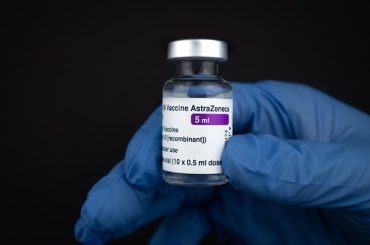Before we dive deep into the PESTEL analysis, let us get the business overview of Pfizer. Pfizer Inc. is a global pharmaceutical company that researches, develops, manufactures, and markets a wide range of healthcare products, including prescription medicines, vaccines, and consumer healthcare products. Founded in 1849 and headquartered in New York City, Pfizer has a long history of innovation in the pharmaceutical industry.
Pfizer operates through three primary business segments:
- Pfizer Biopharmaceuticals Group (PBG): This segment is responsible for developing and commercializing a broad portfolio of innovative medicines across several therapeutic areas, including internal medicine, oncology, vaccines, hospital products, and rare diseases. It is the largest segment within Pfizer and includes many of the company’s blockbuster drugs.
- Upjohn: This segment focuses on off-patent branded and generic medicines, which includes some of Pfizer’s well-known products that have lost patent protection. The segment aims to provide patients with access to affordable medicines. In November 2020, Pfizer completed the spin-off of its Upjohn business, merging it with Mylan to form a new company called Viatris.
- Consumer Healthcare: This segment develops and markets non-prescription healthcare products, including dietary supplements, pain management, respiratory, and personal care items. Some of the widely recognized brands in this segment include Advil, Centrum, and Robitussin.
Pfizer’s robust research and development (R&D) pipeline is critical for driving innovation and maintaining its competitive edge in the pharmaceutical industry. The company has invested heavily in cutting-edge technologies, such as gene therapy and mRNA-based treatments, to create new patient therapeutic options. One example of this innovation is the Pfizer-BioNTech COVID-19 vaccine, developed using mRNA technology.
Financial Performance: Full-Year 2022 Revenues of $100.3 Billion, An All-Time High for Pfizer, Reflecting 30% Operational Growth. Net income in 2022 was $31.3 Billion.
Here is the PESTEL analysis of Pfizer
A PESTEL analysis is a strategic management framework used to examine the external macro-environmental factors that can impact an organization or industry. The acronym PESTEL stands for:
- Political factors: Relate to government policies, regulations, political stability, and other political forces that may impact the business environment.
- Economic factors: Deal with economic conditions and trends affecting an organization’s operations, profitability, and growth.
- Sociocultural factors: Relate to social and cultural aspects that may influence consumer preferences, lifestyles, demographics, and market trends.
- Technological factors: Deal with developing and applying new technologies, innovations, and trends that can impact an industry or organization.
- Environmental factors: Relate to ecological and environmental concerns that may affect an organization’s operations and decision-making.
- Legal factors: Refer to the laws and regulations that govern businesses and industries.
In this article, we will do a PESTEL Analysis of Pfizer.
PESTEL Analysis Framework: Explained with Examples
Political
- Regulation & Compliance: The pharmaceutical industry is highly regulated. Government bodies, like the U.S. Food and Drug Administration (FDA), European Medicines Agency (EMA), and others, have strict standards that companies like Pfizer must meet in drug discovery, testing, manufacturing, and sales.
- Government Healthcare Policies: Policies related to healthcare funding, pricing of medicines, and reimbursement can impact Pfizer’s revenues. For instance, government initiatives to reduce drug prices or promote generic drugs can challenge the profitability of patented medicines.
- Intellectual Property Rights: Political decisions related to patent laws and intellectual property rights directly affect Pfizer. These laws determine how long Pfizer can exclusively sell a drug before generic competitors enter the market.
- Trade Policies: Tariffs, trade barriers, and trade agreements can impact Pfizer’s ability to sell products in foreign markets. Given that Pfizer operates internationally, any changes in trade relations between countries can influence its revenues and cost structures.
- Political Stability: Political stability in the regions in which Pfizer operates can impact its business. For example, civil unrest, changes in government, or geopolitical tensions can hinder operations and sales in those regions.
- Public Health Priorities: Governments might prioritize certain health challenges over others. For instance, during the COVID-19 pandemic, vaccine development and distribution were a massive focus. Companies like Pfizer, which developed a COVID-19 vaccine, had to navigate political landscapes to ensure the rapid approval and distribution of vaccines.
- Government Funding: Research grants, subsidies, or tax incentives can influence Pfizer’s research direction and profitability. Governments might incentivize research in areas like rare diseases or public health crises.
- International Relations: As a multinational corporation, Pfizer’s operations in one country can be affected by its home country’s foreign policy and relationships. For example, sanctions or deteriorating diplomatic relations can hinder its operations in certain regions.
Economic
- Global Economic Climate: The overall health of the global economy can affect pharmaceutical sales. In recessions or economic downturns, healthcare spending might be reduced, potentially impacting Pfizer’s revenues.
- Currency Exchange Rates: Pfizer operates in many countries, so exchange rate fluctuations can significantly affect its revenue and profitability. A strong U.S. dollar might make Pfizer’s products more expensive in foreign markets, potentially reducing sales.
- Interest Rates: Interest rates can influence Pfizer’s capital structure decisions and borrowing costs. High interest rates can increase the cost of capital for R&D or other investments.
- Inflation Rates: Inflation can impact the cost of raw materials, production, and overall operational costs for Pfizer. It can also affect the purchasing power of consumers, which might influence their ability to buy Pfizer’s products.
- Unemployment Rates: High unemployment can reduce the number of people with employer-provided health insurance in countries like the U.S., which could result in lower sales of prescription medications.
- Healthcare Spending: The proportion of GDP a country spends on healthcare can influence Pfizer’s sales in that region. Countries with higher healthcare spending often provide better opportunities for pharmaceutical companies.
- Economic Policies: Government policies related to taxation, fiscal incentives for R&D, or other economic measures can impact Pfizer’s operations and profitability.
- Pricing Pressures: Economic conditions can lead governments or insurance companies to push for lower drug prices, impacting Pfizer’s margins and profitability.
Sociocultural
- Demographic Trends: Changes in age distributions, such as an aging population in many Western countries, can lead to different health needs and drug demands. An older population might require more medications for chronic diseases or age-related conditions.
- Health Consciousness: An increasing awareness and emphasis on health and wellness could influence the demand for preventive medicines, supplements, or treatments.
- Cultural Attitudes Towards Medicine: Different cultures might have varying beliefs about conventional Western medicine. In some cultures, there’s a preference for traditional or alternative treatments over pharmaceutical products.
- Trust in Pharmaceuticals: Public confidence in pharmaceutical companies can influence sales and company reputation. Episodes like drug recall, adverse side effects, or controversies can erode trust and affect sales.
- Social Movements: Movements such as anti-vaccination or those promoting holistic health can influence the public’s perception and acceptance of certain drugs or treatments.
- Consumer Education and Information Access: With the rise of the internet, patients are more informed and often research medications or treatments before taking them. This empowerment can influence purchasing decisions and adherence to treatments.
- Cultural Views on Mental Health: The acceptance and approach towards mental health vary across cultures. In some regions, there might be an increasing acceptance and demand for mental health medications, while others might still stigmatize such treatments.
- Lifestyle Diseases: Urbanization, sedentary lifestyles, and dietary habits can increase diabetes, obesity, or cardiovascular diseases. Understanding these trends can help Pfizer anticipate demand in certain therapeutic areas.
- Gender and Health: Different gender norms, roles, and health priorities in various cultures can impact the type of products in demand. For instance, women’s health products might have varying acceptance and demand across different societies.
- Stigma and Discrimination: For certain diseases, especially in mental health or sexual health, there might be significant societal stigma, which can influence treatment-seeking behavior and acceptance of certain drugs.
Technological
- Research & Development (R&D) Innovations: The core of pharmaceutical companies lies in their ability to innovate. Breakthroughs in biotechnology, genomics, and other fields can lead to the development of new drugs or therapies. Companies need to stay at the forefront of these advances to remain competitive.
- Drug Manufacturing Technologies: Advances in manufacturing processes can lead to more efficient, scalable, and cost-effective drug production. This includes techniques like continuous manufacturing, 3D printing of drugs, or innovations in biological drug production.
- Clinical Trials and Data Collection: Technological tools, including AI and machine learning, are revolutionizing how clinical trials are conducted, making them faster and more efficient. Wearable devices and remote monitoring tools enable better data collection from trial participants.
- Digital Health and Telemedicine: The rise of digital health platforms, apps, and telemedicine can influence how patients receive care and how pharmaceutical products are prescribed and monitored.
- Supply Chain Management: Advanced tracking, analytics, and forecasting tools can optimize the pharmaceutical supply chain, ensuring timely delivery of drugs to various regions, reducing wastage, and controlling costs.
- Personalized Medicine: Technological advancements in genomics and precision medicine lead to treatments tailored to individual patients’ genetic makeups. Pfizer must invest in these areas to offer next-generation treatments.
- Artificial Intelligence (AI) and Big Data: AI can analyze vast datasets for drug discovery, predict patient outcomes, or optimize clinical trial design. Embracing these technologies can significantly reduce R&D costs and time-to-market for new drugs.
- Regulatory Technologies (RegTech): With strict regulations in the pharmaceutical industry, technological solutions that ensure compliance, monitor adverse drug reactions, or facilitate faster regulatory approvals can be of immense value.
- Counterfeit Drugs and Blockchain: Counterfeiting is a significant challenge in the pharmaceutical industry. Blockchain technology offers potential solutions to ensure the authenticity and traceability of drugs from manufacturing to the end consumer.
- Virtual Reality (VR) and Augmented Reality (AR): These technologies can be used for patient education, training healthcare professionals, or even therapy, such as pain management or mental health treatments.
Environmental
- Waste Management: The pharmaceutical industry generates hazardous and non-hazardous waste during drug development and manufacturing. Proper disposal and treatment are crucial to avoid environmental harm and to comply with regulations.
- Water Usage and Disposal: Large amounts of water are used in drug production. Ensuring this water is purified before being released into the environment is vital. Additionally, efficiently managing water usage can be particularly important in regions facing water scarcity.
- Use of Natural Resources: Some pharmaceutical products may require specific natural resources. Sustainable sourcing and ensuring minimal depletion of these resources can be essential for both environmental and business reasons.
- Regulations and Compliance: Governments worldwide are implementing stricter environmental regulations. Non-compliance can lead to penalties, reputational damage, and operational challenges for Pfizer.
- Green Initiatives: There’s an increasing demand from stakeholders (including investors, consumers, and employees) for companies to adopt sustainable practices. Initiatives might include green energy adoption, sustainable infrastructure, or eco-friendly packaging.
- Environmental Health and Drug Residues: There are concerns about pharmaceutical residues in water systems due to improper disposal of medicines by consumers and effluents from manufacturing plants. These residues can impact aquatic life and even enter human drinking water.
- Public Perception and Brand Image: How a company addresses environmental concerns can greatly influence its public image. Positive environmental stewardship can enhance brand reputation, while negligence can challenge public relations.
- Sustainable R&D Practices: Embracing sustainability in research and development not only reduces environmental impact but can also lead to innovations that are both environmentally and economically beneficial.
Legal
- Drug Approval Regulations: Before a drug can be marketed, it has to pass through rigorous testing and gain approval from regulatory bodies like the U.S. Food and Drug Administration (FDA) or the European Medicines Agency (EMA). The approval process, its requirements, and timeframes vary by region.
- Intellectual Property (IP) Rights: Patent protection is essential in the pharmaceutical industry. Like other pharma companies, Pfizer relies heavily on patents to protect its drug formulas and earn exclusive revenues. However, patent laws and enforcement vary across countries.
- Liability and Litigation: Pharmaceutical companies can face lawsuits if their drugs cause unexpected side effects or harm. This includes both class-action lawsuits and individual claims.
- Price Regulation: Some countries have stringent regulations around drug pricing to ensure that medications remain affordable for their populations. Such regulations can affect Pfizer’s profit margins in those regions.
- Advertising and Promotion Laws: There are strict regulations around how pharmaceuticals can be advertised, especially to consumers. Direct-to-consumer advertising, allowed in the U.S., is banned in many other countries.
- Data Protection and Privacy: With the increasing use of digital tools, patient data, and clinical trial data, companies like Pfizer need to be mindful of data protection regulations like the European Union’s General Data Protection Regulation (GDPR).
- Ethical Testing and Clinical Trials: There are strict legal (and ethical) guidelines around human and animal testing. Non-compliance can lead to severe penalties and reputational damage.
- Mergers and Acquisitions (M&A) Regulations: Pfizer, like many pharmaceutical giants, frequently engages in M&A activities. These transactions are scrutinized under antitrust and competition laws in various jurisdictions.
- Taxation and Transfer Pricing Laws: Global companies must navigate the tax regulations of every country they operate in. Transfer pricing, in particular, is a complex area where multinational companies transfer goods and services between their subsidiaries, attracting regulatory attention.
- Counterfeit Drugs and Regulations: Laws related to counterfeit drugs are essential for Pfizer to protect its brand and ensure patient safety. Effective legal frameworks help combat counterfeit versions of Pfizer’s products in the market.











